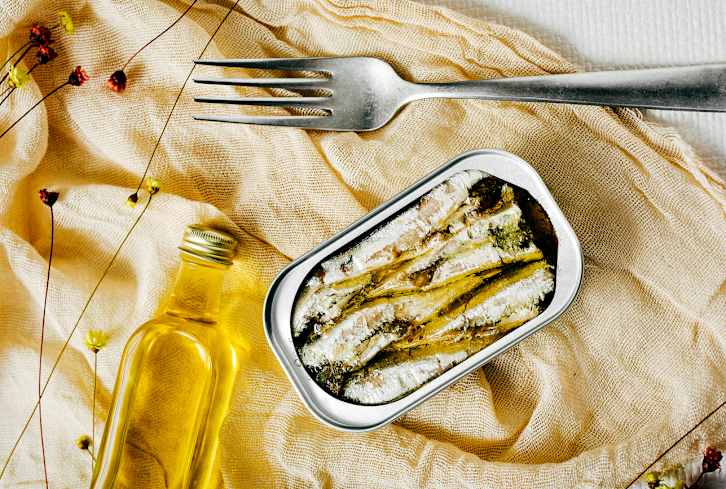Advertisement
A Guide To Nicotinamide Riboside (NR), The Healthy Aging Supplement


Let's face it, just about everyone is looking for effective, science-backed ways to turn back the clock and boost longevity. So it's no wonder that healthy-aging products and procedures—from stretch mark creams to antioxidant supplements to chemical peels to plastic surgery—have become a $250 billion industry (projected to hit $330 billion by 2021).
Much of what comprises this industry, however, simply hides aging from the outside—it doesn't actually counter the aging process on a cellular level from the inside out. There's no "fountain of youth" pill just yet.
But, it turns out, scientists do think they're getting closer to longevity in a capsule in the form of something called nicotinamide riboside (NR), which they're formulating into increasingly popular supplements that claim to enhance energy and longevity, maintain health, and support the aging process.*
What is nicotinamide riboside (NR)?
Nicotinamide riboside (NR) is a newly discovered form of vitamin B3 that is found naturally in trace amounts in milk. No one really thought much about NR until scientists discovered that our bodies can convert NR into something called nicotinamide adenine dinucleotide (NAD+). And NAD+—at least for healthy-aging researchers—is kind of a big deal.
NAD+ is a coenzyme found in all living cells, and it plays a vital role in energy metabolism and maintaining proper cell functioning. Levels of NAD+ also happen to decline significantly as we get older, and these declining levels apparently drive the aging process.
Here, learn about the fascinating connection between NR and NAD+, the potential benefits of taking an NR supplement, and more.
Potential health benefits of nicotinamide riboside.
While there are over 40 human clinical trials in progress, many of the studies on NR and NAD+ have been performed on animals, which means we can't draw definitive conclusions for humans just yet. However, research to date suggests NR is safe.
1. It may support mitochondrial function.
As mentioned above, levels of NAD+ decline significantly as we get older. These declining levels seem to drive the aging process, particularly the deterioration of our mitochondria—the power plants in our cells that turn our food and oxygen into energy. (This is why people whose mitochondria are not functioning optimally tend to feel exhausted.) Underperforming or damaged mitochondria are also thought to play a role in many age-related issues that humans experience, especially health conditions involving the heart and brain.
The good news: If you support normal levels of NAD+ in the body by supplementing with a precursor like NR, you may be able to maintain mitochondrial functions—and thus promote healthy aging. That's because NAD+ seems to exert some of its health-promoting properties by helping sirtuins do their job1. Sirtuins are a class of proteins that regulate biological pathways, turn certain genes on and off, and help protect cells from age-related decline. For example, NAD+ increases the activity of SIRT12, which has been found to induce the formation of new mitochondria and extend mitochondrial life span.
2. It may enhance memory and combat cognitive decline.
Age-related cognitive decline is one of those circumstances that can make getting older downright scary—and promising research on finding a way to slow its progression has been lacking. That's why this 2018 study3 is so exciting: Researchers developed a strain of mice with features that mimicked human loss of cognitive function, and then they added an NR supplement to the drinking water of half the mice for three months. Over this period, researchers found that the NR-treated mice had less DNA damage, higher neuroplasticity, increased production of new neurons, and lower levels of neuronal damage. In the hippocampus area of the brain (where damage and loss of volume is found in people with cognitive decline), NR seemed to clear existing DNA damage or prevent it from spreading further. The NR-treated mice also performed better on memory tests.
3. It might lengthen your life.
Several studies4 have found that replenishing levels of NAD+ with supplements containing NR lengthens the life span of mice by improving mitochondrial function and increasing activation of SIRT15, a specific sirtuin protein. This is the same mechanism by which restricting calories seems to lengthen life span. (Additional compounds that may mimic the life-extending effects of calorie restriction include pterostilbene and resveratrol.) Other studies suggest that NAD+ increases the activation of SIRT66, which helps maintain the length of telomeres—the end caps on DNA that are associated with longevity. While studies are still needed to confirm these results in humans, hopefully they will be just as promising.
4. It might promote muscle quality and strength.
As we age, muscle function and strength tend to decline. But supplementing with NR—at least in mice—seems to help. In one study, researchers used mice whose genes were altered so their muscle tissue contained only 15 percent of the normal amount of NAD+. They then measured muscle strength and endurance, which was pretty low. But after giving the mice NR-enriched water for just a week, their exercise capacity was restored to that of a normal, healthy mouse. This could hold promise for aging adults who experience muscle weakness or atrophy.
In another mouse study, supplementation with NAD+ precursors led to DNA repair and an improvement in the health of muscle tissue within the first week—to the point where researchers couldn't tell the difference between the tissue of a mouse that was two years old versus a mouse that was four months old.
5. It might counter the effects of a high-fat diet.
Animal research suggests that NR supplementation helps support the metabolism and weight maintenance, even with a high fat diet. One study7 found that mice on high-fat diets that received NR gained 60 percent less weight than they did on the same diet without NR. These positive results, researchers say, were due to increased activation of the sirtuins SIRT1 and SIRT3, which led to improved oxidative metabolism. None of the mice receiving NR showed signs of diabetes either, and their energy levels improved.
How much NR should I take?
In clinical trials, NR supplements have been well-tolerated at doses as high as 1,000 mg8 per day, suggesting that it's likely safe for most people. NR supplements can be taken on an empty stomach or with meals.
Are there any good dietary sources of NR?
As mentioned, there are trace amounts of NR in milk9 and dairy products. Milk contains about 4.8 micromoles of NR per liter. Unfortunately, chugging milk won’t turn back time. The amount of NR in milk is much lower than studied therapeutic doses, so your best bet is supplementation.
Bottom line on nicotinamide riboside: Can NR and NAD slow down aging?
The research is certainly promising. NR could finally be the answer to fighting aging from the inside out. It’s the closest science has come to the “fountain of youth” in a bottle. As functional medicine pioneer Robert Rountree M.D. put it, “If you raise NAD, you basically promote a vital, healthy aging process, which is a huge thing. I think nicotinamide riboside is an incredibly promising compound that most people haven't heard about.”
9 Sources
- https://www.ncbi.nlm.nih.gov/pmc/articles/PMC5107309/
- https://www.ncbi.nlm.nih.gov/pmc/articles/PMC5403509/
- https://www.nih.gov/news-events/news-releases/compound-repairs-neurological-damage-shows-cognitive-benefits-mouse-model-alzheimers-disease
- https://www.ncbi.nlm.nih.gov/pubmed/27127236
- https://www.ncbi.nlm.nih.gov/pmc/articles/PMC3627124/
- https://www.ncbi.nlm.nih.gov/pubmed/18337721/
- https://www.ncbi.nlm.nih.gov/pmc/articles/PMC3616313/
- https://www.nature.com/articles/s41467-018-03421-7
- https://www.ncbi.nlm.nih.gov/pubmed/27052539


















